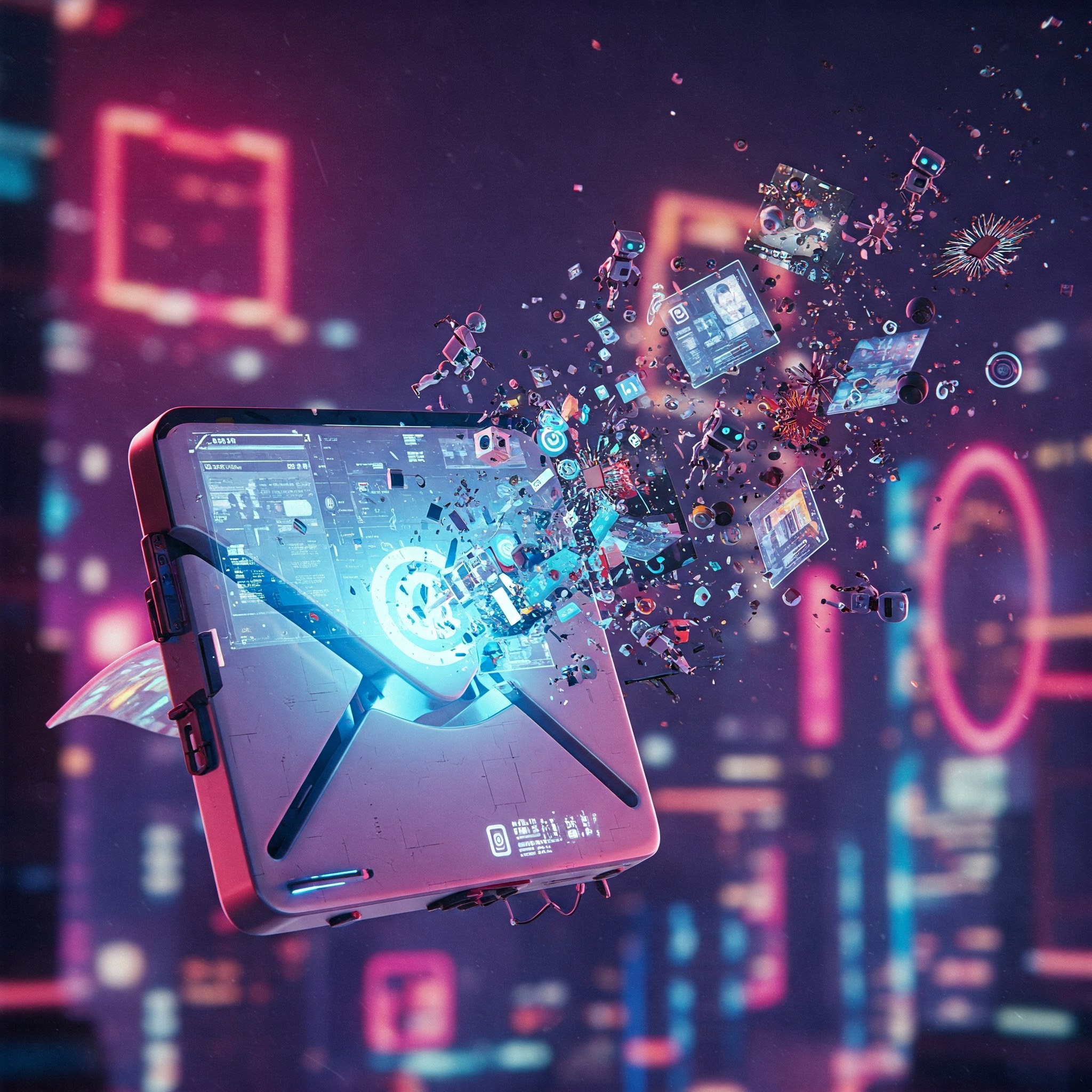The robots are coming… to help? That’s the cautiously optimistic take from Deloitte’s AI Forum 2025, where industry bigwigs like Jehil Thakkar (Deloitte India), Biren Ghose (Technicolor Creative Services), and Gopichand Katragadda (Myelin Foundry) debated AI’s role in the ever-evolving media and entertainment landscape.
The burning question: Is AI a muse or a menace? Will it liberate creatives from tedious tasks or relegate them to the unemployment line?
AI: The ‘Augmented Intelligence’ Wingman
Forget Skynet. The prevailing sentiment was that AI is less about replacing humans and more about augmenting them. Ghose even coined the term “augmented intelligence,” painting a picture of a harmonious partnership where humans bring the vision and AI handles the, shall we say, less glamorous stuff.
Think of it like this: AI can crunch the numbers, render the CGI, and auto-tune your questionable singing. You, the human, get to focus on the actual storytelling, the emotional depth, the stuff that makes people feel things. (Try teaching an algorithm empathy – I dare you.)
Democratizing Creativity (One Algorithm at a Time)
Got a brilliant idea but lack the budget for a Hollywood-level production? AI might just be your savior. Katragadda pointed out that AI is democratizing content creation, enabling indie creators to produce professional-quality content without needing a sprawling studio and an army of technicians.
Suddenly, your cat video can have explosions. Thanks, AI.
This democratization extends beyond entertainment, creeping into consumer applications, too. Facial recognition, personalized content recommendations… AI is everywhere, watching, learning, and probably judging your taste in music.
Speeding Up Production, One Process at a Time
Time is money, and AI is apparently a time-traveling accountant. Ghose claimed that AI can slash animation production timelines from days to hours. Think of all the extra Netflix shows we can binge now!
Post-production processes like rotoscoping, CGI rendering, and editing are also getting the AI treatment, streamlining workflows and freeing up human artists to… well, probably attend more meetings. Or nap. It depends on the company culture, really.
Storytelling 2.0: Personalized Narratives and Algorithmic Plot Twists
Imagine a movie that changes based on your reactions. A film with multiple endings, tailored specifically to you. That’s the promise of AI-powered storytelling. Experts at the forum highlighted how AI could analyze user behavior and adapt content in real-time.
It’s already happening in gaming, with NPCs that evolve based on player choices. Soon, your Netflix binge might binge you back.
AI is also breaking down language barriers with auto-translation and dubbing, ensuring global reach for content creators. So, your cat video can go viral in Japan. Congratulations.
The Human Factor: Still Essential (For Now)
Despite all the hype, there’s a caveat. Ghose cautioned against relying too heavily on automation, warning that AI could “take away empathy.” After all, creativity isn’t just about technical skill; it’s about human connection and storytelling that resonates on a deeper level.
AI might be able to generate a script, but can it capture the nuances of human relationships? Can it understand the cultural context behind a joke? Can it feel?
Probably not. At least, not yet. But give it time.
The Future of Entertainment: Vegas and Beyond
The Sphere in Las Vegas, with its massive LED display and ultra-high resolution, is a prime example of AI-driven entertainment. It’s immersive, it’s spectacular, and it’s probably a little overwhelming.
However, adoption rates vary across industries. The media sector has embraced AI, but manufacturing is lagging due to regulatory hurdles. Katragadda noted that AI should be more prevalent in manufacturing but that safety regulations and industry conservatism are slowing things down.
The Verdict: Cautious Optimism (With a Side of Existential Dread)
The Deloitte AI Forum 2025 presented a nuanced view of AI’s impact on creativity. While AI is poised to revolutionize creative processes, human storytelling remains paramount. As AI drives interactive content, virtual environments, and personalized narratives, the line between reality and fiction will blur, and we’ll all be left wondering if our cats are secretly plotting our demise (with AI assistance, of course).
The key takeaway? Collaboration, not replacement. AI is a tool, albeit a powerful one, but the soul of storytelling will always belong to humans. At least, that’s what we’re telling ourselves. Just in case the robots are listening.

